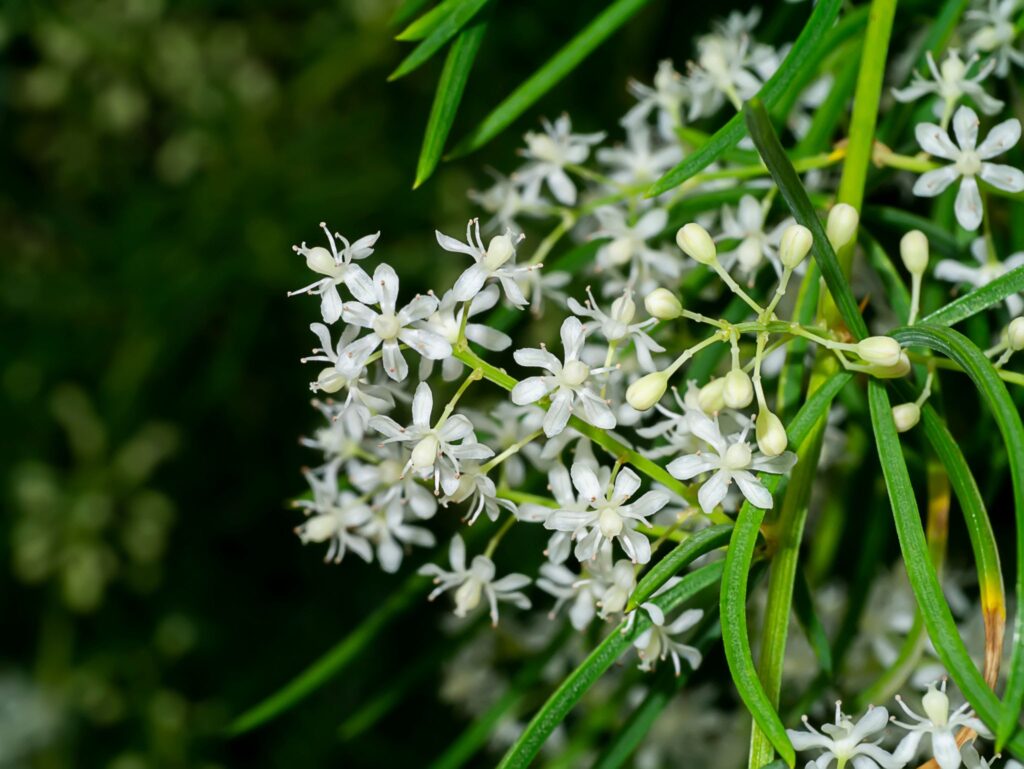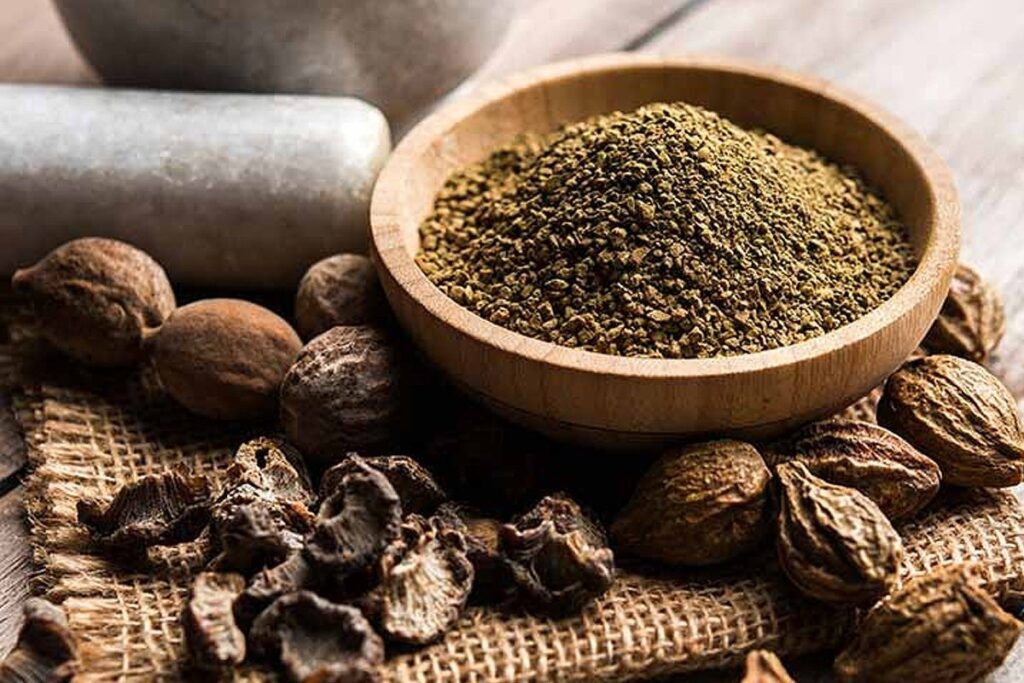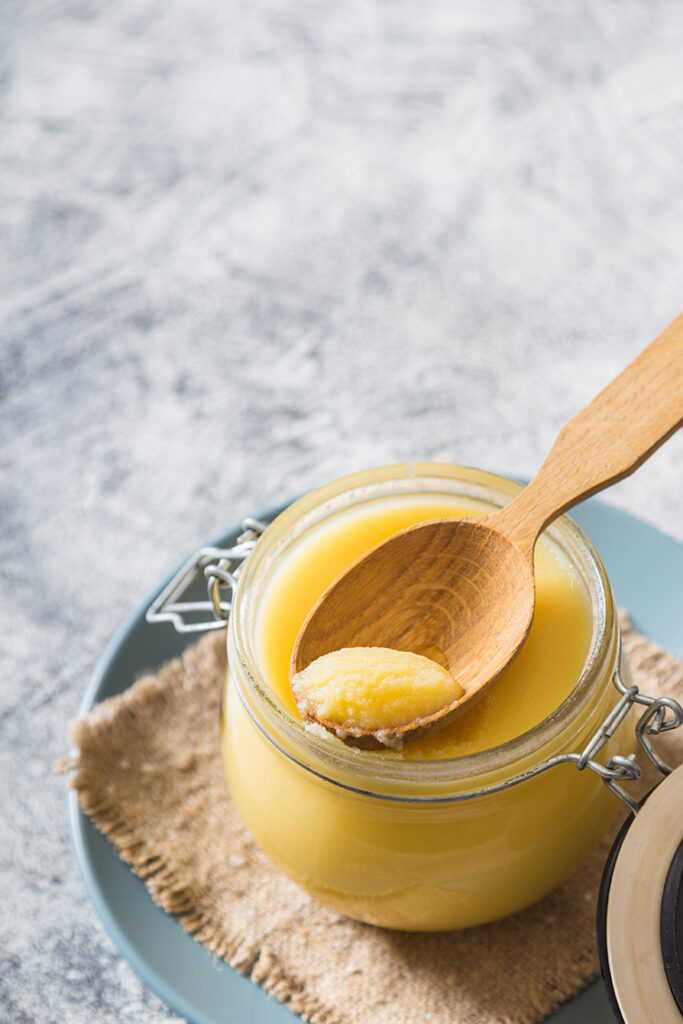Pregnancy is a sacred and transformative journey in Hinduism, revered as the embodiment of divine blessings and a crucial part of the cycle of life. Ayurveda, the ancient holistic system of medicine originating from India over 5000 years ago, plays a significant role in guiding and supporting women through their pregnancy journey. This comprehensive guide delves deep into the intricate relationship between Ayurveda and Hindu pregnancy, offering detailed insights into various aspects, including nutrition, lifestyle, and spiritual well-being. Furthermore, this article will explore specific herbs, treatments, and practices that are integral to Ayurvedic prenatal care.

Ayurveda and Pregnancy
Ayurveda, a Sanskrit word meaning “knowledge of life” (Ayur – life, Veda – knowledge), is a holistic system of medicine deeply rooted in the ancient wisdom of India. During pregnancy Ayurveds balances the body, mind, and spirit to achieve overall health and well-being for both mother and unborn child.
Ayurveda and Pregnancy: A Holistic Approach
Ideally we should incorporate aspects of Ayurveda when we decide that we want to start our conception journey; that is even before conception. Here are some steps we can take while we are trying to conceive:
Preconception Care

Panchakarma is an important part of Ayurvedic care, and it’s especially useful during pregnancy. It involves special treatments like Virechana, which helps clean your body by getting rid of toxins, and Basti, which uses gentle enemas to do the same. These treatments are done to make sure your body is in the best possible condition for getting pregnant. Virechana helps your digestion work well, so your body can use all the good nutrients it needs. Basti goes even further by making sure your whole body, especially your reproductive organs, are clean and healthy. Before you try to get pregnant, these treatments can increase your chances and get your body ready for the incredible journey of pregnancy.
Care During Pregnancy:
A. Balancing Doshas:
Central to Ayurveda are the three doshas: Vata, Pitta, and Kapha, which represent the fundamental energies of life. Each individual is believed to have a unique constitution, or Prakriti, determined by the balance of these doshas. Ayurveda identifies specific imbalances and recommends tailored therapies to balance the doshas, enhancing fertility.
B. Dietary Herbs:
i) Shatavari (Asparagus Racemosus):

Shatavari is often hailed as the “Queen of Herbs” for women in Ayurveda due to its remarkable properties that make it particularly beneficial during pregnancy. This herb is renowned for its ability to boost fertility and support the female reproductive system. Shatavari contains phytoestrogens, plant compounds that mimic the hormone estrogen in the body. During pregnancy, these compounds can help regulate hormonal fluctuations, promoting hormonal balance. This is crucial for a healthy conception and pregnancy, as hormonal imbalances can lead to irregular menstrual cycles and difficulties in getting pregnant.
Additionally, Shatavari possesses antioxidant properties, which can help protect the reproductive organs from oxidative stress, potentially enhancing the chances of successful conception. Furthermore, its anti-inflammatory properties may contribute to reducing inflammation in the reproductive tract, creating a more conducive environment for the implantation of the fertilized egg.
ii) Ashwagandha (Withania Somnifera):

Ashwagandha, known as a potent adaptogen in Ayurveda, plays a vital role in supporting both physical and emotional well-being during the journey to conception and pregnancy. This herb is revered for its stress-reducing qualities, which are especially beneficial when attempting to conceive. Stress and anxiety can have a negative impact on fertility by disrupting the delicate hormonal balance required for ovulation and successful implantation.
Ashwagandha helps reduce the production of the stress hormone cortisol, fostering a relaxed and conducive environment for conception. By lowering stress levels, it indirectly promotes fertility and increases the likelihood of successful pregnancy. Additionally, Ashwagandha’s adaptogenic properties can enhance overall vitality and energy, which is essential for both partners during the preconception phase.
Furthermore, Ashwagandha’s immune-boosting properties may help protect against infections or illnesses that could potentially harm the developing fetus. A robust immune system is vital during pregnancy to safeguard the health of both the mother and the unborn child.
Incorporating Shatavari and Ashwagandha into the diet during preconception and pregnancy can provide comprehensive support for hormonal balance, stress reduction, and overall well-being, ultimately contributing to a healthier and more successful pregnancy journey.
iii) Garbhapal Rasayana
is a specialized Ayurvedic formulation designed to support pregnancy and promote the health of both the mother and the developing fetus. This unique blend of herbs and natural ingredients has been carefully chosen for its nourishing, strengthening, and rejuvenating properties. Here, we will explore the key components and their specific benefits during pregnancy:

**1. Shatavari (Asparagus Racemosus): Shatavari is often referred to as the “Queen of Herbs” for women and plays a vital role in Garbhapal Rasayana due to its remarkable properties. This herb is rich in phytoestrogens, which help regulate hormonal imbalances during pregnancy, contributing to the stability of the reproductive system. Shatavari also promotes healthy lactation and aids in the proper development of the mammary glands, preparing the mother for breastfeeding.
**2. Gokshura (Tribulus Terrestris): Gokshura is known for its diuretic properties, which can be beneficial in preventing water retention, a common discomfort during pregnancy. It helps maintain kidney function and reduces swelling, ensuring the mother’s comfort.
**3. Vidarikanda (Pueraria Tuberosa): Vidarikanda is valued for its nourishing and rejuvenating qualities. During pregnancy, it supports healthy weight gain and provides essential nutrients that both the mother and the developing fetus require.
**4. Ashwagandha (Withania Somnifera): Ashwagandha, an adaptogenic herb, helps the mother manage stress and anxiety, which is crucial for a healthy pregnancy. By reducing stress levels and promoting relaxation, it indirectly contributes to hormonal balance and overall well-being.
**5. Yashtimadhu (Glycyrrhiza Glabra): Yashtimadhu, commonly known as licorice, is included for its soothing and anti-inflammatory properties. It can help alleviate common pregnancy discomforts such as heartburn and digestive issues.
**6. Pippali (Piper Longum): Pippali is a potent digestive herb that can aid in digestion and nutrient absorption, ensuring that the mother and baby receive essential nutrients for growth and development.
**7. Ginger (Zingiber Officinale): Ginger is included for its anti-nausea and anti-inflammatory properties, which can provide relief from morning sickness and other gastrointestinal issues that are common during pregnancy.
The benefits of Garbhapal Rasayana during pregnancy are manifold:
- Nourishment: The combination of these herbs provides vital nutrients, supporting the healthy growth and development of the fetus.
- Hormonal Balance: Herbs like Shatavari and Ashwagandha help regulate hormones, ensuring a stable and healthy hormonal environment during pregnancy.
- Stress Reduction: Ashwagandha’s adaptogenic properties reduce stress and anxiety, promoting emotional well-being for both the mother and the unborn child.
- Digestive Support: Pippali and ginger aid in digestion and alleviate common gastrointestinal issues that pregnant women often experience.
- Anti-Inflammatory: Ingredients like Yashtimadhu and ginger provide relief from inflammation and discomfort, enhancing the mother’s overall comfort.
- Water Retention: Gokshura helps prevent water retention and swelling, promoting comfort and mobility during pregnancy.
Incorporating Garbhapal Rasayana as a part of prenatal care can offer a holistic approach to promoting the health and well-being of both the expectant mother and the developing baby, addressing various aspects of the pregnancy journey to ensure a smoother and healthier experience. It’s important to consult with a qualified Ayurvedic practitioner before starting any herbal supplements during pregnancy to ensure their safety and appropriateness for individual needs.
Abhyanga (Oil Massage):

Abhyanga is a revered Ayurvedic practice that involves massaging the body with warm, medicated oils. This therapeutic massage offers numerous benefits during pregnancy:
- Stress Reduction: Pregnancy can be physically and emotionally taxing. Abhyanga helps alleviate stress and anxiety, promoting relaxation and a sense of well-being. The gentle, rhythmic strokes of the massage induce a calming effect on the nervous system.
- Improved Circulation: The circular motions and gentle pressure applied during Abhyanga help enhance blood circulation. This is particularly beneficial during pregnancy as it aids in the efficient transport of nutrients and oxygen to both the mother and the developing fetus.
- Pain Relief: Abhyanga can provide relief from common discomforts associated with pregnancy, such as muscle tension, backaches, and joint pain. The soothing massage helps ease these physical discomforts.
- Enhanced Skin Health: The application of warm oil hydrates and nourishes the skin, preventing dryness and itchiness. It also helps maintain skin elasticity, reducing the likelihood of stretch marks.
Now, let’s delve into the properties and benefits of the specific oils used in Abhyanga during pregnancy:
Sesame Oil (Til Tel): Sesame oil is a widely favored choice for Abhyanga during pregnancy for several reasons:
- Prevention of Stretch Marks: One of the primary concerns during pregnancy is the development of stretch marks as the skin stretches to accommodate the growing baby. Sesame oil is rich in essential fatty acids and antioxidants that help moisturize and nourish the skin. Regular massage with sesame oil can reduce the appearance of stretch marks and prevent new ones from forming.
- Improved Circulation: Sesame oil has warming properties, making it suitable for Abhyanga. When applied and massaged onto the skin, it enhances blood circulation, which is vital for the well-being of both the mother and the baby.
- Soothing Effect: The gentle and calming nature of sesame oil provides a soothing effect on the body and mind, helping pregnant women relax and unwind.
Bhringraj Oil (Eclipta Alba): While Bhringraj oil is more commonly associated with scalp and hair care, it can also offer benefits during pregnancy:
- Stress Reduction: The application of Bhringraj oil to the scalp and hair can provide a soothing and stress-relieving experience. Massaging the scalp with this oil helps alleviate tension and promotes relaxation.
- Hair Health: Pregnancy can bring about changes in hair health, including increased hair fall or brittleness. Bhringraj oil is renowned for its ability to strengthen hair, reduce hair loss, and promote overall hair health, addressing some of these concerns.
- Cooling Effect: Bhringraj oil has a natural cooling effect, which can be particularly comforting for pregnant women experiencing heat-related discomfort.
Incorporating Abhyanga with sesame oil and Bhringraj oil into a regular self-care routine can provide pregnant women with a range of physical and emotional benefits, enhancing their overall well-being and contributing to a more comfortable and enjoyable pregnancy experience. It’s essential to consult with a qualified Ayurvedic practitioner or healthcare provider before starting any new practices or using specific oils during pregnancy to ensure safety and suitability for individual needs.
Ayurvedic Postpartum Care:
Ayurveda places significant importance on postpartum care, known as “Sutika Paricharya” or “Sutika Care.” This phase is considered a critical time for the mother’s recovery and bonding with the newborn. Proper postpartum care not only aids in the physical and emotional healing of the mother but also supports the overall health and well-being of both the mother and the baby.
Triphala:

Triphala is a renowned herbal formulation in Ayurveda composed of three fruits: Amalaki (Emblica Officinalis), Bibhitaki (Terminalia Bellirica), and Haritaki (Terminalia Chebula). Its use during the postpartum period offers several benefits for both the mother and the newborn:
- Digestive Health: Pregnancy and childbirth can often lead to digestive discomfort, including constipation, which can be particularly bothersome during the postpartum phase. Triphala is a gentle laxative that helps relieve constipation by promoting regular bowel movements, thereby alleviating discomfort and aiding in the removal of waste from the body.
- Nutrient Absorption: Triphala supports the efficient absorption of nutrients from the diet, which is essential during the postpartum period when the mother’s body is recovering and breastfeeding. Adequate nutrient absorption ensures that the mother receives the necessary nourishment for her recovery and for providing milk to the baby.
- Detoxification: Triphala has natural detoxifying properties. It helps remove toxins and impurities from the body, which may have accumulated during pregnancy and childbirth. This detoxification process supports the body’s healing and rejuvenation.
- Immune Support: A strong immune system is crucial during the postpartum period to protect both the mother and the newborn from infections. Triphala helps boost immunity, which is especially beneficial when the mother is in close contact with the baby.
Ghee (Clarified Butter):

- Ghee, a staple in Ayurvedic postpartum care, holds profound benefits for both the mother and the newborn:
- Nutritional Support: Ghee is highly nourishing and rich in essential fatty acids. It provides the mother with a concentrated source of energy and nutrients, which is vital for her recovery and the demands of breastfeeding. Ghee’s nutrient density helps replenish the mother’s strength and stamina.
- Tissue Healing: Ghee is known for its ability to promote tissue healing. After childbirth, the mother’s body undergoes significant changes and may have experienced tears, episiotomies, or cesarean sections. The consumption of ghee supports the healing of these tissues and aids in the restoration of the body.
- Lactation Support: Ghee is believed to enhance the quality and quantity of breast milk. The nourishing properties of ghee benefit both the mother and the newborn by ensuring that the baby receives adequate nutrition during breastfeeding.
- Digestive Aid: Ghee aids in digestion and helps soothe the digestive tract, reducing the likelihood of gastrointestinal discomfort or constipation, which can be common during the postpartum period.
Incorporating Triphala and ghee into the postpartum diet is a traditional Ayurvedic practice that can significantly contribute to the mother’s healing, well-being, and successful transition into motherhood. However, it’s essential for mothers to consult with an Ayurvedic practitioner or healthcare provider to ensure that these practices are suitable for their individual needs and circumstances.
Garbha Sanskar
Sanskrit Chants: Recitation of Vedic mantras and shlokas to create a harmonious and spiritually uplifting environment for the unborn child.
Music Therapy: Exposure to classical music and melodious tunes believed to stimulate foetal development.
Astrological Considerations
Muhurta (Auspicious Timing): Astrologers are consulted to determine auspicious times for conception and childbirth, aligning with the stars and planetary positions.
Challenges and Modern Adaptations
While Ayurveda offers valuable guidance during pregnancy, it is essential to combine its principles with modern medical care. Routine prenatal check-ups, ultrasounds, and medical interventions are crucial to ensure the health of both the mother and the baby. Ayurveda can complement these approaches by providing holistic support.
Conclusion
Ayurveda’s role in Hindu pregnancy is deeply rooted in tradition and holistic well-being. By incorporating specific herbs, treatments, and practices, Ayurveda contributes to the physical, mental, and spiritual health of both the mother and the unborn child. While traditional knowledge is invaluable, it should be harmonized with modern medical care to ensure a safe and healthy pregnancy journey.
In the tapestry of Hindu culture, Ayurveda threads a path to motherhood that honors tradition while embracing the best of modern knowledge. Through this integration, Ayurveda continues to play a vital role in guiding and nurturing Hindu mothers on their sacred journey of pregnancy.


